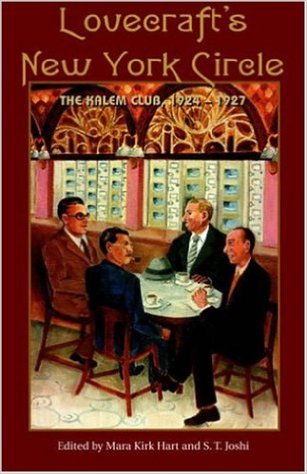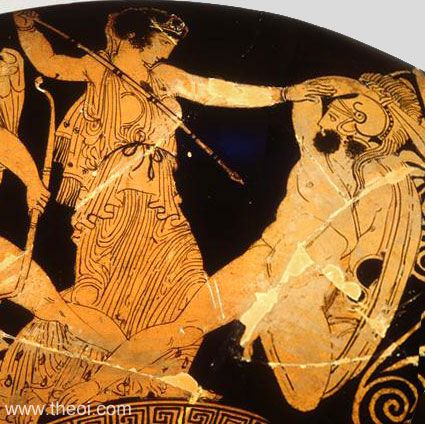It looks like you're using an Ad Blocker.
Please white-list or disable AboveTopSecret.com in your ad-blocking tool.
Thank you.
Some features of ATS will be disabled while you continue to use an ad-blocker.
share:
originally posted by: tikbalang
a reply to: mikegrouchy
Hi, can you please expand?
There is something about HP Lovecraft that is
very interesting to me, and I hope this is on
topic for the OP. I try to be on topic, but by
reactions I can tell that many times it is not
perceived that way by other contributors.
So disclaimers aside...

He was the center of a literary circle.
Something that is overlooked frequently is
that, not only was his own witting interest-
ing but everyone in his inner circle went on
to dominate and define the horror genera.
He was the head of a club.
Similar to Ginsberg, with people like
Kerouac and a slew of others defined the
1960's.
It is surprising to me how often when one
digs into the past to learn more about one
particular 'Lionized' hero of art that they
are part of a group that they defined, built
up, and led. Look at the genius surround-
ing Benjamin Franklin and the circle of
founding fathers. Look at Robert A.
Heinlein, L. Sprague de Camp and Isaac
Asimov the people who got Science Fiction
added to the library as a section unto itself.
Lovecraft didn't just write
horror stories, he
defined the
genera.
edit on 22-1-2017 by mikegrouchy because: (no reason given)
I hope that answers your question.
If you were looking for something more on the inside of his thoughts and views, than the external effects he had, I could say a little about that as well.
Mike Grouchy
If you were looking for something more on the inside of his thoughts and views, than the external effects he had, I could say a little about that as well.
Mike Grouchy
I have been a fan of HPL for a very long time. I just want to share some stuff with you.
There is a few movies based on HPL stories.
Firstly here is a documentary about HPL, I hope you like it.
Onto some HPL based movies.
The first one I would like to share with you is a movie based on a short story called "From beyond" And is also the title of the movie from Stuart Gordon.
Secondly everyone's favorite Re- Animator. Another movie from Stuart Gordon which is loosely based on the HPL story, Herbert West–Reanimator
And one of my personal favorites and not well known. "The Unnamable" based on a short story by HPL with the same Title.
Another not well known film adaption from the producers of from beyond and re-anamator is a film called "The Lurking Fear" which is based on the HPL story of the same title. Gotta love Jeffrey Combs.
Hope you enjoy.
There is a few movies based on HPL stories.
Firstly here is a documentary about HPL, I hope you like it.
Onto some HPL based movies.
The first one I would like to share with you is a movie based on a short story called "From beyond" And is also the title of the movie from Stuart Gordon.
Secondly everyone's favorite Re- Animator. Another movie from Stuart Gordon which is loosely based on the HPL story, Herbert West–Reanimator
And one of my personal favorites and not well known. "The Unnamable" based on a short story by HPL with the same Title.
Another not well known film adaption from the producers of from beyond and re-anamator is a film called "The Lurking Fear" which is based on the HPL story of the same title. Gotta love Jeffrey Combs.
Hope you enjoy.
a reply to: mikegrouchy
This is great! I got so much material now to look through!
I believe Robert Bloch and his writing is probably the one that should be worth considering
This is great! I got so much material now to look through!
I believe Robert Bloch and his writing is probably the one that should be worth considering
edit on 2017122 by tikbalang because: (no reason
given)
The setting
In this safe environment, where people could walk the streets of New York at all hours in complete safety H.P. Lovecraft feared something. Sensed something. Something lurking in the dark prehistory of humanity.
In developing his world, his universe, his mythos, one thing has stuck in the imagination of the reader more than any other. The book called The Necronomicon.
Described as being written by the "Mad Arab", Abdul Alhazred, and bound in human skin. The Wikipedia page says that many readers have believed it was a real book, with booksellers getting requests for it. So what is this book. Just a literary device to give evil some verisimilitude. An analogy for forbidden knowledge. A parable of the horrors of life without mercy?
Consider the following posts as evidence that Lovecraft saw darkness in the Future of America. That one day even the streets at night would no longer be safe for delicate authors to go for long walks unmolested and wonder.
Read on to see our modern earth overrun with the evil old ones . . . If you dare.
For three years in the 1920s, H.P. Lovecraft and a small group of literary friends formed what they called The Kalem Club. The group met in coffee houses, ice-cream parlors, and on the streets of New York during a time when a person would think nothing of walking those streets from midnight to dawn.
From the first review of the Amazon book posted above
www.amazon.com...
In this safe environment, where people could walk the streets of New York at all hours in complete safety H.P. Lovecraft feared something. Sensed something. Something lurking in the dark prehistory of humanity.
In developing his world, his universe, his mythos, one thing has stuck in the imagination of the reader more than any other. The book called The Necronomicon.
Described as being written by the "Mad Arab", Abdul Alhazred, and bound in human skin. The Wikipedia page says that many readers have believed it was a real book, with booksellers getting requests for it. So what is this book. Just a literary device to give evil some verisimilitude. An analogy for forbidden knowledge. A parable of the horrors of life without mercy?
Consider the following posts as evidence that Lovecraft saw darkness in the Future of America. That one day even the streets at night would no longer be safe for delicate authors to go for long walks unmolested and wonder.
Read on to see our modern earth overrun with the evil old ones . . . If you dare.

The Chthulu mythos refers to the ancient pre-Olympian tribalism that used to dominate the world. Where no one could conduct safe business nor accumulate wealth because it was an age of mob rule. An age with no written laws.

Chthonic (/ˈkθɒnɪk/, from Greek χθόνιος – chthonios, "in, under, or beneath the earth", from χθών – chthōn "earth"; pertaining to the Earth; earthy; subterranean), apart from its literal translation meaning 'subterranean', its historical or interpretive definition designates, or pertains to, deities or spirits of the underworld, especially in relation to Greek religion.
Wikipedia / Cthonic

The Necronomicon is referred to as being written on human skin, or made from the flesh of man. It is not something that resembles a book, so much as it is the law of tribalism, and the customs of one's group. Where sacrifice is made of the living, and not for food, but burnt whole, or buried in the earth.

Rolling Stones Concert Altamont
Chthonic law is defined as a system of law centered on the sacred character of the cosmos. According to Professor H. Patrick Glenn, the Chthonic legal tradition emerged through experience, orality and memory. According to him it is the oldest of all traditions and can be understood as the law of a culture or tribe.
Wikipedia / Cthonic Law

The Inuit lived in the Arctic Polar regions and no one who ever studied them found any indication that they had written laws. Only that there was a set way of doing things, and that the Shaman would intervene if someone threatened the Tribal traditions.
"We are told today that Inuit never had laws or "maligait". Why? They say because they are not written on paper. When I think of paper, I think you can tear it up, and the laws are gone. The laws of the Inuit are not on paper."
—Mariano Aupilaarjuk, Rankin Inlet, Nunavut, Perspectives on Traditional Law
Wikipedia / Inuit
So what did Lovecraft write about that scared him so much?
Well, In my opinion he feared that America would return to mob justice, rule by consensus, and that very well educated singular individuals would no longer be recognized as invaluable to the Republic.
Things like this.

He feared that one day Rational man would be considered the insane one,
and that even a civilization as ancient as the Greeks could return to mob
rule, and mob justice.
That well educated and cultured individuals would no longer be safe in public,
and better off behind the walls of an institution.
Well, In my opinion he feared that America would return to mob justice, rule by consensus, and that very well educated singular individuals would no longer be recognized as invaluable to the Republic.
Things like this.

He feared that one day Rational man would be considered the insane one,
and that even a civilization as ancient as the Greeks could return to mob
rule, and mob justice.
That well educated and cultured individuals would no longer be safe in public,
and better off behind the walls of an institution.
Years ago in Ann Arbor Michigan. Mid 90's I went into a library there and looked up this book by Abdul Alhazred and found it. According to the card catalog it was in the basement in a nearby building. After a time i found the building and a older librarian gal took me down to a Erie basement And showed me the book. It was odd, very large (not thick) but like big 20+ inches big. I remember her telling me that I could not check it out and I could only read it in a reading room by appointment only. I never followed up on it and had the catalog # written down too. Lost it years ago. But by no means was this book bound in Human flesh, maybe leather? I Have a late cousin who was a scholar and we argued for years about if this book existed. I know what I seen and it was real.
originally posted by: mikegrouchy
The setting
For three years in the 1920s, H.P. Lovecraft and a small group of literary friends formed what they called The Kalem Club. The group met in coffee houses, ice-cream parlors, and on the streets of New York during a time when a person would think nothing of walking those streets from midnight to dawn.
From the first review of the Amazon book posted above
www.amazon.com...
In this safe environment, where people could walk the streets of New York at all hours in complete safety H.P. Lovecraft feared something. Sensed something. Something lurking in the dark prehistory of humanity.
In developing his world, his universe, his mythos, one thing has stuck in the imagination of the reader more than any other. The book called The Necronomicon.
Described as being written by the "Mad Arab", Abdul Alhazred, and bound in human skin. The Wikipedia page says that many readers have believed it was a real book, with booksellers getting requests for it. So what is this book. Just a literary device to give evil some verisimilitude. An analogy for forbidden knowledge. A parable of the horrors of life without mercy?
Consider the following posts as evidence that Lovecraft saw darkness in the Future of America. That one day even the streets at night would no longer be safe for delicate authors to go for long walks unmolested and wonder.
Read on to see our modern earth overrun with the evil old ones . . . If you dare.
ETA: Richard. D. Flavin was my last living relative. Please honor his wisdom and visit his astonishing works here.Flavins Corner
R.I.P. Rick! I still Miss you.
The man had cancer and died from it. He was brilliant and yet found dead and frozen and alone under a bridge in Boston. Please help the homeless, they are not the downtrodden losers you might think they are.

edit on 1 22 2017 by Naturallywired because: (no reason given)
edit on 1 22 2017 by Naturallywired
because: (no reason given)
originally posted by: mikegrouchy
So what did Lovecraft write about that scared him so much?
Well, In my opinion he feared that America would return to mob justice, rule by consensus, and that very well educated singular individuals would no longer be recognized as invaluable to the Republic.
Things like this.
He feared that one day Rational man would be considered the insane one,
and that even a civilization as ancient as the Greeks could return to mob
rule, and mob justice.
That well educated and cultured individuals would no longer be safe in public,
and better off behind the walls of an institution.
I think H.P. had some mystical experiences in the collective life with his family. I believe he's seen things most human eyes aren't ready to see.
I believe he feared the implications of such visions of unnatural things. Things very alien to the human form, with high intelligence and lofty ambitions. I think he feared the haunting fate of his line......insanity, being institutionalized, and a despairing death.
I think he feared what he didn't fully understand, like most people.
Yet he was the father of a genera of literature,
and a lot of his fears are coming true.
and a lot of his fears are coming true.
a reply to: tikbalang
I recommend everything, as I'm biased. If you can afford $20 USD, Barnes and Nobel has his entire collection of stories in leather-bound form.
I think Lovecraft himself was a bit of a genius - not only does he do a good job with his horror, but some of the things described truly make you wonder. What I love in particular is that he made an imaginary book called the Necronomicon and used it throughout the stories. The version of the book that's now on the shelves is basically Lovecraft's as well. I'm careful what I read from him, as it's kept me up at night thinking.
Plus, it's not chapter fiction: I like that I can read one of the stories in the car 10 minutes before I need to get into work.
-fossilera
I recommend everything, as I'm biased. If you can afford $20 USD, Barnes and Nobel has his entire collection of stories in leather-bound form.
I think Lovecraft himself was a bit of a genius - not only does he do a good job with his horror, but some of the things described truly make you wonder. What I love in particular is that he made an imaginary book called the Necronomicon and used it throughout the stories. The version of the book that's now on the shelves is basically Lovecraft's as well. I'm careful what I read from him, as it's kept me up at night thinking.
Plus, it's not chapter fiction: I like that I can read one of the stories in the car 10 minutes before I need to get into work.
-fossilera
originally posted by: mikegrouchy
originally posted by: tikbalang
a reply to: mikegrouchy
Hi, can you please expand?
It is surprising to me how often when one digs into the past to learn more about one particular 'Lionized' hero of art that they
are part of a group that they defined, built up, and led. Look at the genius surrounding Benjamin Franklin and the circle of
founding fathers. Look at Robert A. Heinlein, L. Sprague de Camp and Isaac Asimov the people who got Science Fiction
added to the library as a section unto itself.
Interestingly a similar circumstance led to the creation of "Frankenstein" and "The Vampyre"!
"We owe the two greatest horror tales of the last two centuries to a handful of troubled souls shut up together in an old house one wet summer."
a reply to: watchitburn
At mountains of madness, starring Tom Cruise- somebody needs to make this happen!
In some letter or something, Lovecraft said, that his best story is the color out of space,
And sadly, he was working on his masterpiece when he died, never finishing it, i do not remember (i member) if he even started to write it...
At mountains of madness, starring Tom Cruise- somebody needs to make this happen!
In some letter or something, Lovecraft said, that his best story is the color out of space,
And sadly, he was working on his masterpiece when he died, never finishing it, i do not remember (i member) if he even started to write it...
new topics
-
Where should Trump hold his next rally
2024 Elections: 1 hours ago -
Shocking Number of Voters are Open to Committing Election Fraud
US Political Madness: 2 hours ago -
Gov Kristi Noem Shot and Killed "Less Than Worthless Dog" and a 'Smelly Goat
2024 Elections: 3 hours ago -
Falkville Robot-Man
Aliens and UFOs: 3 hours ago -
James O’Keefe: I have evidence that exposes the CIA, and it’s on camera.
Whistle Blowers and Leaked Documents: 4 hours ago -
Australian PM says the quiet part out loud - "free speech is a threat to democratic dicourse"...?!
New World Order: 5 hours ago -
Ireland VS Globalists
Social Issues and Civil Unrest: 5 hours ago -
Biden "Happy To Debate Trump"
2024 Elections: 6 hours ago -
RAAF airbase in Roswell, New Mexico is on fire
Aliens and UFOs: 6 hours ago -
What is the white pill?
Philosophy and Metaphysics: 7 hours ago
top topics
-
A Warning to America: 25 Ways the US is Being Destroyed
New World Order: 16 hours ago, 21 flags -
James O’Keefe: I have evidence that exposes the CIA, and it’s on camera.
Whistle Blowers and Leaked Documents: 4 hours ago, 11 flags -
Blast from the past: ATS Review Podcast, 2006: With All Three Amigos
Member PODcasts: 8 hours ago, 11 flags -
Australian PM says the quiet part out loud - "free speech is a threat to democratic dicourse"...?!
New World Order: 5 hours ago, 10 flags -
Biden "Happy To Debate Trump"
2024 Elections: 6 hours ago, 10 flags -
Mike Pinder The Moody Blues R.I.P.
Music: 8 hours ago, 8 flags -
Ireland VS Globalists
Social Issues and Civil Unrest: 5 hours ago, 5 flags -
RAAF airbase in Roswell, New Mexico is on fire
Aliens and UFOs: 6 hours ago, 5 flags -
What is the white pill?
Philosophy and Metaphysics: 7 hours ago, 5 flags -
Putin, Russia and the Great Architects of the Universe
ATS Skunk Works: 11 hours ago, 4 flags
active topics
-
Remember These Attacks When President Trump 2.0 Retribution-Justice Commences.
2024 Elections • 58 • : WeMustCare -
2024 Pigeon Forge Rod Run - On the Strip (Video made for you)
Automotive Discussion • 8 • : WhitewaterSquirrel -
Gov Kristi Noem Shot and Killed "Less Than Worthless Dog" and a 'Smelly Goat
2024 Elections • 28 • : cherokeetroy -
Shocking Number of Voters are Open to Committing Election Fraud
US Political Madness • 5 • : AwakeNotWoke -
President BIDEN's FBI Raided Donald Trump's Florida Home for OBAMA-NORTH KOREA Documents.
Political Conspiracies • 34 • : AwakeNotWoke -
The Acronym Game .. Pt.3
General Chit Chat • 7756 • : bally001 -
RAAF airbase in Roswell, New Mexico is on fire
Aliens and UFOs • 8 • : Skinnerbot -
Putin, Russia and the Great Architects of the Universe
ATS Skunk Works • 27 • : KnowItAllKnowNothin -
Falkville Robot-Man
Aliens and UFOs • 5 • : Ophiuchus1 -
Biden "Happy To Debate Trump"
2024 Elections • 42 • : JadedGhost
